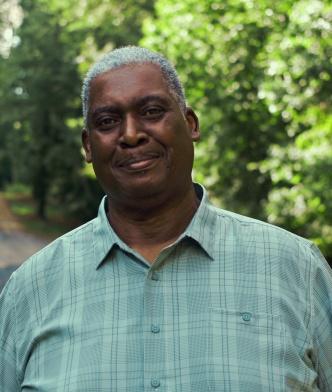Courthouse in Evansville Indiana
- The Fee Is Free Unless You Win®.
- America's Largest Injury Law Firm™
- Protecting Families Since 1988
- 20 Billion+ Won
- 1,000+ Lawyers Nationwide
Free Case Evaluation

Courthouse in Evansville Indiana
Evansville, Indiana, is home to several courthouses that handle different types of cases. The right courthouse for your case will depend on the nature of the case. Here are a few options and their locations:
The Vanderburgh County Courthouse is the main courthouse in Evansville and is located at 825 Sycamore Street. The courthouse houses both the Circuit Court and the Superior Court.
The other option is the Evansville Federal Courthouse, located at 101 NW Martin Luther King Jr Blvd. It houses the United States District Court for the Southern District of Indiana.
Lastly, the Vanderburgh County Juvenile Justice Center, located at 2025 W. Virginia St, is home to the Vanderburgh County Juvenile Court.
How it works
It's easy to get started.
The Fee Is Free™. Only pay if we win.
Results may vary depending on your particular facts and legal circumstances.
Step 1
Submit
your claimWith a free case evaluation, submitting your case is easy with Morgan & Morgan.
Step 2
We take
actionOur dedicated team gets to work investigating your claim.
Step 3
We fight
for youIf we take on the case, our team fights to get you the results you deserve.
FAQ
Get answers to commonly asked questions about our legal services and learn how we may assist you with your case.
What Is a Circuit Court in Indiana?
A Circuit Court is a state-level court in the United States. Each US state usually has its own Circuit Court system.
These courts generally have jurisdiction over a wide range of cases, including but not limited to those involving civil and criminal matters. In addition, some Circuit Courts may hear appeals from lower courts.
In some states, Circuit Courts fall into different divisions or branches, each with its own judges and specific jurisdiction. For example, a Circuit Court might consist of a Family Court division, a Criminal Court division, and a Civil Court division.
In legal lingo, the term 'jurisdiction' refers to the official (legal) authority to make decisions and judgments.
Circuit Courts in Indiana are located in every country. These courts usually have unlimited jurisdiction over trial cases, except in situations where other courts have exclusive or concurrent jurisdiction.
What Is a Superior Court in Indiana?
In Indiana, a Superior Court is a trial court of general jurisdiction. This means that the court has the legal authority to hear and decide various civil and criminal cases, such as felony and civil cases.
You'll find Superior Courts in each of Indiana's 92 counties. Each court is organized into either one or multiple judicial circuits, depending on each county's population and caseload.
In most cases, each Superior Court has one or more judges elected by the voters in their respective counties, each serving a six-year term.
What Is the Difference Between a Civil Court and a Superior Court in Indiana?
In Indiana, both Circuit Courts and Superior Courts are trial courts of general jurisdiction. However, their specific roles and responsibilities differ.
The first difference between a Circuit Court and a Superior Court is their jurisdiction. The second is the types of cases they handle.
Let's start with jurisdiction.
Circuit Courts in Indiana have general jurisdiction over civil and criminal cases and may also hear appeals from lower courts. On the other hand, Superior Courts have limited jurisdiction over civil cases, typically involving damages of up to $75,000. Instead, they have jurisdiction over some types of criminal cases, including felony cases.
Now let's briefly discuss the court's structure. In Indiana, Circuit Courts are grouped into judicial circuits, each covering several counties. That's where the term 'Circuit' Court derives. In addition, each circuit usually has at least one Circuit Court judge, who may hear cases in any of the counties within the circuit.
On the other hand, Superior Courts are typically located in each of Indiana's 92 counties and have one or more judges elected by the county's voters.
When it comes to specific functions, Circuit Courts and Superior Courts may have different roles and responsibilities. For example, in Vanderburgh County, Circuit Court judges hear cases involving more serious crimes, while Superior Court judges hear lower-level felonies and certain civil cases. To put things into perspective, felony criminal cases account for about two-thirds of the cases heard in the Civil Court in Vanderburgh county, while the remaining one-third account for civil cases.
What Courts Handle Personal Injury Cases in Evansville, Indiana?
As mentioned, in Evansville, Indiana, personal injury cases are typically handled in the Vanderburgh County Circuit Court or the Vanderburgh County Superior Court. Both courts have jurisdiction over civil cases that arise within the county, including personal injury claims.
Do Personal Injury Claims Always Have to Go to Court in Indiana?
Contrary to popular belief, personal injury claims in Indiana do not always have to go to court. In fact, according to a report by the US Bureau of Justice Statistics, 3 out of 4 personal injury claims settle before going to court. In other words, over 90 percent of personal injury cases are settled outside of court through negotiations between the parties involved or alternative dispute resolution methods such as mediation or arbitration.
That said, the decision to settle a case outside of court or to pursue litigation ultimately depends on the specific circumstances of the case and the preferences of the parties involved. An experienced personal injury attorney can help you evaluate your legal options and determine the best course of action for your specific case.
How Long Do I Have to File a Personal Injury Lawsuit in Evansville, Indiana?
In Evansville and throughout Indiana, the statute of limitations (the deadline) for filing a personal injury lawsuit is generally two years from the date of the injury or accident. If you don't file a lawsuit within two years of the date of the injury, you may lose your right to seek compensation.
But there may be exceptions to this two-year statute of limitations in certain cases. A good example is if the injury was not immediately apparent, such as in a medical malpractice case. In such a case, the statute of limitations may be extended.
There are more exceptions to this rule, as discussed below.
Indiana's statute of limitations varies depending on the individual circumstances of that particular case. For instance, for minors, the statute of limitations does not start until they reach the age of 18. Similarly, individuals with physical or emotional disabilities will not be bound by these deadlines until their disability status is removed.
In addition, if a defendant is uncooperative or cannot be located, such as when they have moved out of state or gone into hiding, the statute of limitations will be paused until they are found. Lastly, incarcerated individuals are usually exempt from the statute of limitations while in jail.
What Is the Process of Filing a Personal Injury Lawsuit in a Courthouse in Evansville, Indiana?
Here's an overview of the process of filing a personal injury lawsuit in a courthouse in Evansville, assuming that out-of-court negotiations have failed.
The first step is to draft and file the Complaint. This document basically outlines the reasons for filing the lawsuit and officially kicks off the case. You will then need to file the Complaint with the appropriate court in Evansville, along with a filing fee.
The next step is to serve the defendant with a copy of the Complaint and a Summons. The Summons is a court form that notifies the defendant that they are being used and also states the dates they should appear in court.
This typically involves having a process server deliver the documents to the defendant or their attorney.
Next, you'll need to wait for the defendant's response. In most cases, the defendant has 20 days to respond to the Summons and Complaint. The response will typically either deny the allegations in the Complaint or assert affirmative defenses.
Once the Complaint and response have been filed, both parties will engage in a process known as discovery. This process involves exchanging information and evidence related to the case. It may also include depositions, written interrogatories, and requests for the production of documents.
In the weeks or months leading up to trial, the court may hold pre-trial conferences and hearings to address various issues related to the case. Examples of possible issues that could be addressed in this phase include the admissibility of evidence or potential settlement negotiations.
Suppose the case is not settled or dismissed. In that case, it will proceed to trial. During trial, both parties will present their evidence and arguments to a judge or jury, who will ultimately decide the outcome of the case.
Why Is It Important to Consult a Personal Injury Attorney Before Filing a Lawsuit?
You can file a personal injury lawsuit without an attorney, but that's not recommended. In fact, you may not even need to file a lawsuit against the other party. Speaking with an attorney opens up possibilities you never knew existed. Here's why.
An experienced personal injury attorney usually has a deep understanding of the laws surrounding your specific case and how best to fight for you. For this reason, they can evaluate your case, determine your legal options, and explain the strengths and weaknesses of your case.
If they determine that you have a valid case against the other party, a skilled injury attorney can help assess the damages you may be entitled to. In most personal injury cases, plaintiffs can claim damages such as medical expenses, pain and suffering, lost wages, and loss of enjoyment of life, among other damages.
Keep in mind that the exact damages you may be able to recover will depend on the specifics of your case. That is yet another good reason to work with an attorney; the last thing you want is to lose an opportunity to recover the compensation you deserve and end up paying costly expenses out of pocket or not even being able to afford it.
As mentioned earlier, most personal injury lawsuits can be settled outside of court. However, this also depends on your attorney's experience and negotiation skills. A skilled attorney can help negotiate a fair settlement on your behalf, saving you time and money in the long run.
But if your case goes to trial, meaning negotiation out of court is no longer an option at that point, an attorney can help prepare you for the legal process and represent you in court.
How Can a Morgan & Morgan Personal Injury Attorney in Evansville Help?
One of the most important qualities of a good personal injury lawyer is the ability to fight in court when negotiations fail. That's exactly what Morgan & Morgan, America's largest injury firm, is best known for.
Our attorneys do not settle for less, which explains why we've helped our clients win over $20 billion as compensation for various injuries since 1988. Our lawyers in Evansville and throughout Indiana understand how the law works in these jurisdictions and, most importantly, how to navigate them to ensure our clients are compensated for their injuries.
So, if you or your loved one has been injured in an accident, you deserve justice and fair compensation. Don't let the insurance companies intimidate you into accepting a low settlement; we can fight for more than that. Contact us today for a free consultation.






